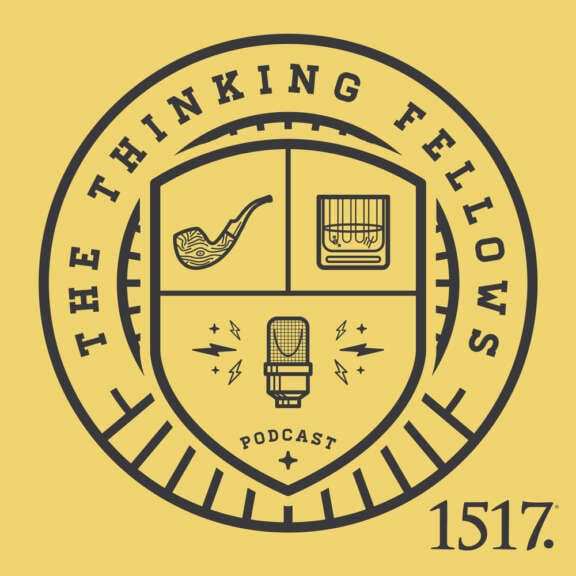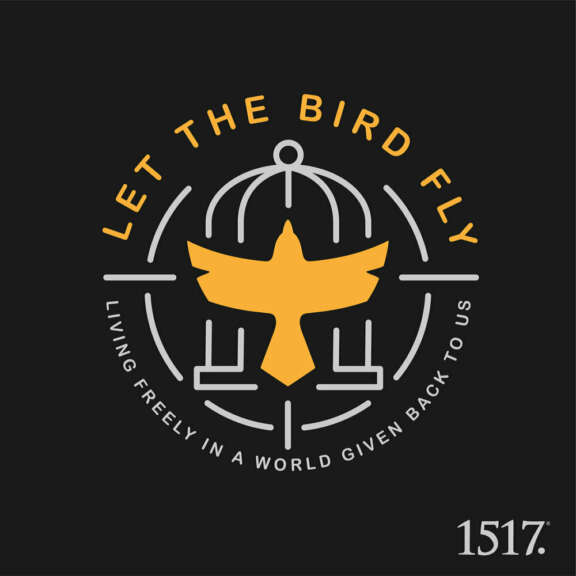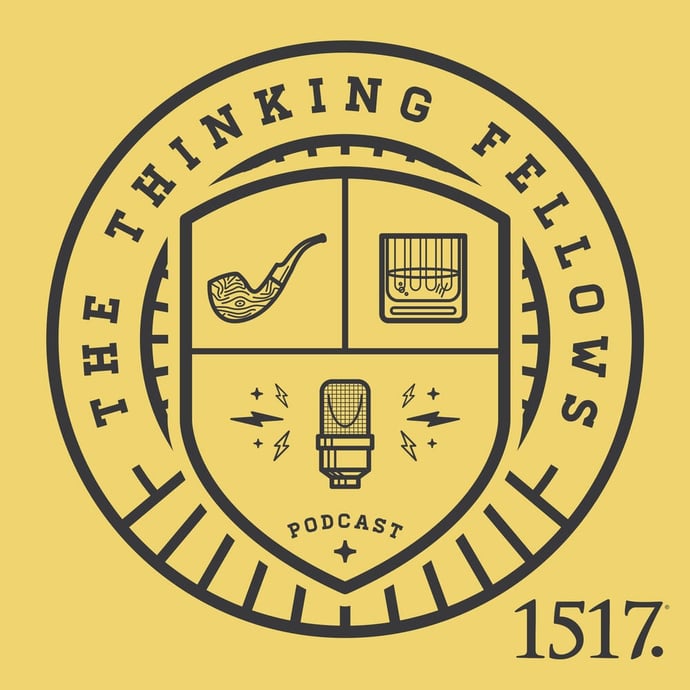It’s very beautiful and very cold, and you’re not allowed to touch anything. Gillespie and Riley continue to read and discuss Martin Luther's Galatians commentary. This episode, the easiest way to get rid of Jesus.
Podcasts
Each 1517 Podcast is dedicated to delivering Christ-centered content through weekly, monthly, and seasonal audio platforms. Listen online or on your favorite podcasting app.
Author
- All Authors
- Aaron Zimmerman
- Adam Francisco
- Amy Mantravadi
- Blake Flattley
- Bob Hiller
- Bradley Gray
- Brian W. Thomas
- Bror Erickson
- Bruce Hillman
- Caleb Keith
- Chad Bird
- Chris Rosebrough
- Christopher Gillespie
- Cindy Koch
- Craig Donofrio
- Dan van Voorhis
- Daniel Deen
- Daniel Emery Price
- Darrin Sheek
- David Andersen
- David Rufner
- David Zahl
- Debi Winrich
- Delwyn Campbell
- Donavon Riley
- Doug Klembara
- Edward Killian
- Elyse Fitzpatrick
- Erick Sorensen
- Flame
- Grant Klembara
- Gretchen Ronnevik
- Haroldo Camacho
- Jacob Smith
- Jared C. Wilson
- Jeff Mallinson
- Jeffrey Pulse
- Jessica Thompson
- Jim Nestingen
- Joel Fitzpatrick
- Joel Hess
- John Andrew Schreiner
- John Bombaro
- John T. Pless
- John W. Hoyum
- John Warwick Montgomery
- Katie Koplin
- Kelsi Klembara
- Ken Sundet Jones
- Magnus Persson
- Matt Popovits
- Michael Berg
- Michael Horton
- Nick Lannon
- Paul Koch
- Peter Nafzger
- Philip Bartelt
- Raleigh Sadler
- RJ Grunewald
- Robert Kolb
- Rod Rosenbladt
- Ron Hodel
- Sam Leanza Ortiz
- Sarah Condon
- Sarah Crowder
- Scott Davis
- Scott Keith
- Steven Paulson
- Tanner Olson
- Troy Neujahr
- Uwe Siemon-Netto
- Wade Johnston
- William Cwirla
-
Oh, he’s very popular... they all adore him. They think he’s a righteous dude. Gillespie and Riley continue to read and discuss Martin Luther's Galatians commentary. This episode, self-righteousness, false virtue, and human works.
-
Luther moves pretty fast. You don’t stop and read carefully once in a while, you could miss it. Gillespie and Riley continue to read and discuss Martin Luther's commentary on Galatians (1535). This episode, Jesus, jerks, COVID-19, and foxes.
-
Luther’s Gospel Piñata! Gillespie and Riley read and discuss Martin Luther’s 1535 Galatians commentary. This episode, true wisdom, Satan, and the point of Paul’s letter to the Galatian church.
-
On this episode, the Fellows address a listener’s question about what it means when somebody calls themselves Reformed.
-
On the 489th anniversary of the Augsburg confession, the Fellows ask the question, does the Church still stand or fall on justification?
-
On this episode Wade and Dr. Keith square off over two influential characters in the early Reformation: Philip Melanchthon and Matthias Flacius Illyricus.
-
The series on the history of the Reformation comes to an end with a recap on the Formula of Concord and the beginnings of the Thirty Years War.
-
This episode of the Thinking Fellows focuses on the second generation of Lutheran reformers.
-
Between the years 1550 and 1560 the giants of the Reformation are dying. The Fellows discuss the political and theological turmoil that occurred as a result of the Smalcald war.
-
On this episode, the Fellows discuss the events leading up to and the fallout after Luther’s death.
-
Between the years 1550 and 1560 the giants of the Reformation are dying. The Fellows discuss the political and theological turmoil that occurred as a result of the Smalcald war.



